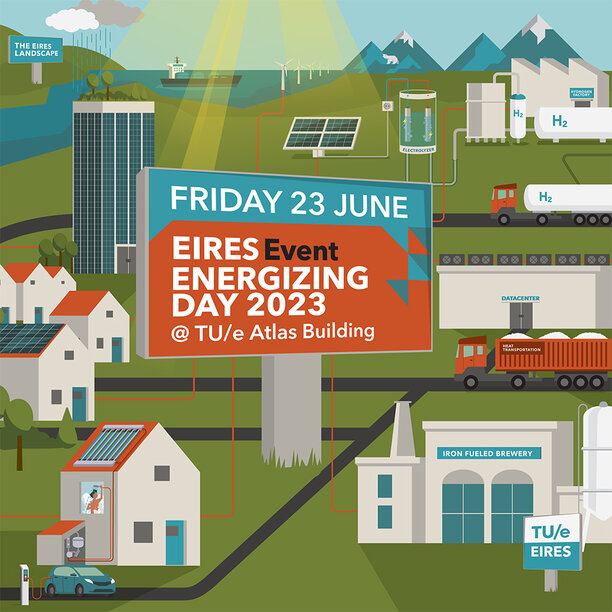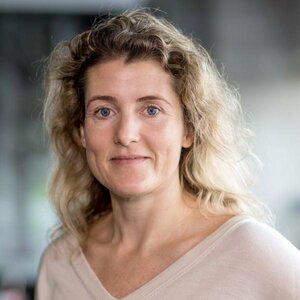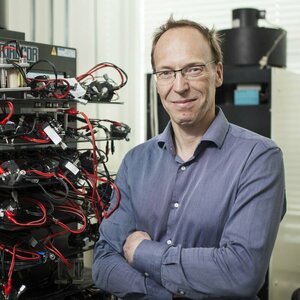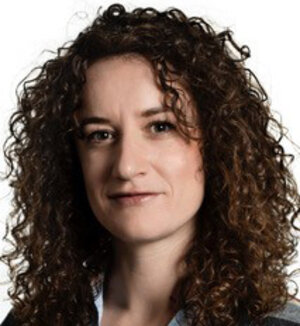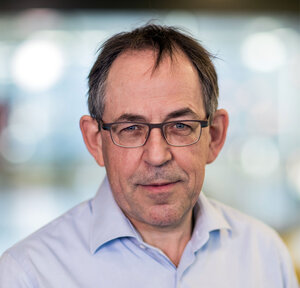SPEAKERS & TOPICS
Floor Alkemade
- Floor Alkemade | Eindhoven University of Technology
- Chair of Economics and Governance of Technological Innovation
Topic
Social tipping dynamics to accelerate the energy transition
Introduction
Social tipping dynamics in energy transitions occur when a small change or intervention has a large effect on emission reductions. This lecture gives an overview of potential social tipping points in the energy transition and identifies leverage points for policy.
Short bio
Floor Alkemade is a Full Professor and Chair of Economics and Governance of Technological Innovation at Eindhoven University of Technology (TU/e). Her key areas of expertise include innovation, cleantech and sustainability. Floor’s research goal is to identify the general and location-specific mechanisms that lead to successful innovations for sustainability. Together with a group of PhD students, Floor uses data-driven and simulation approaches to analyze innovation for sustainability at different scales. Examples are the behaviour of electric vehicle owners in smart grids and, the eco-innovation capacities of countries.

Marnix Wagemaker
- Marnix Wagemaker | Delft University of Technology
- Head of Storage of Electrochemical Energy (SEE)
Topic
Material developments for next generation batteries
Introduction
With the growing electrical mobility and introduction of renewable energy sources the demands on batteries are rapidly increasing. Batteries need to store more energy, charge faster, have a long cycle life, become independent of critical materials, become more safe and cheaper. This requires the development of new battery materials, anodes, cathodes and electrolytes that address these challenges. Here I will present the directions pursued within the SEE battery research group at the TUD. These include the development of electrolytes for high-capacity anodes (Li-metal/silicon), solid electrolytes for solid state Li-ion batteries and cathodes for Na-ion batteries. This suggests many opportunities as well as a future diversification of battery types towards the specific demands.
Short bio
Prof.dr.ir. M. Wagemaker received his PhD in physics at Delft University Technology (2003) and since May 2017 is head of the section Storage of Electrochemical Energy and full professor at the Delft University of Technology in the Netherlands. His expertise’s include the fundamental battery processes, simulation/modelling (atomic scale DFT and meso-scale modelling) and characterization (Neutron and X-ray scattering, solid state NMR, Electrochemistry) thereof, aiming at improved understanding and the development of next generation battery materials. Focus areas include the development of novel liquid and solid state electrolytes and electrodes based on non-critical elements (for Li-ion and Na-ion batteries). Currently he holds a VICI grant on battery research, coordinates the BatteryNL research consortium (NWA-ORC national project) and is initiator of the TUD e4-battery institute focussing on the development of future circular battery technology.
Interview with Marnix Wagemaker | BETTER BATTERIES: A BALANCING ACT

Vanessa Jane Bukas
- Vanessa Jane Bukas | Fritz-Haber-Institute of the Max-Planck-Society - Berlin
- Group leader FHI Theory Department
Topic
Questions of selectivity in electrocatalysis
Introduction
Heterogeneous electrocatalysis is at the heart of developing sustainable future energy technologies. The rational design of suitable electrocatalysts, however, hinges upon improving our fundamental understanding of the underlying reaction mechanisms. Product selectivity, in particular, remains overall poorly understood and cannot be rationalized by popular thermodynamic models that currently define the state-of-the-art in computational electrocatalysis. This talk will address a number of possible scenarios as to why this may be, while challenging prevalent mechanistic assumptions. Atomistic models, based mainly on density functional theory, will explore microscopic reaction mechanisms to demonstrate the role of local field effects at the electrical double layer as well as competing pathways of mesoscopic mass transport.Heterogeneous electrocatalysis is at the heart of developing sustainable future energy technologies. The rational design of suitable electrocatalysts, however, hinges upon improving our fundamental understanding of the underlying reaction mechanisms. Product selectivity, in particular, remains overall poorly understood and cannot be rationalized by popular thermodynamic models that currently define the state-of-the-art in computational electrocatalysis. This talk will address a number of possible scenarios as to why this may be, while challenging prevalent mechanistic assumptions. Atomistic models, based mainly on density functional theory, will explore microscopic reaction mechanisms to demonstrate the role of local field effects at the electrical double layer as well as competing pathways of mesoscopic mass transport.
Short bio
Dr. Vanessa Jane Bukas is a group leader at the FHI Theory Department where she works on theoretical/computational catalysis. Her expertise developed originally as a post-doc in the group of J. Nørskov – first at Stanford University, and later as a Marie Curie fellow at the Technical University of Denmark. Her current research concerns modelling heterogeneous thermal and electro-catalytic processes from first-principles simulations, with special focus on the fundamental understanding of reaction mechanisms and resulting trends in catalyst performance.
Interview Vanessa Jane Bukas | CHALLENGED BY COMPLEXITY

Christina Papadimitriou
- Christina Papadimitriou | Eindhoven University of Technology
- Assistant Professor Intelligent Energy Systems - Electrical Energy Systems Group (EES)
Topic
Integrated energy systems for energy transition
Introduction
The presentation covers research topics foster the multi-carrier energy systems approach and elaborate on how these systems can optimally managed and operated for supporting the energy transition.
Short bio
Dr. Christina N. Papadimitriou is an assistant professor with Eindhoven University of Technology (TU/e) on intelligent energy systems. She has received her diploma in Electrical and Computer Engineering from the University of Patras, Greece (2001-2006) as well her PhD degree on control of dispersed generation for their integration into microgrids with honors. She was a senior researcher at the National Technical University of Athens (NTUA) (2013-2016) while she has held short term assistant professor positions at different Universities in Greece and Cyprus. From 2016-2019 she has served as a system engineer at Greek Distribution System’s Operator (HEDNO). She has been a post-doc fellow with FOSS and University of Cyprus from 2019-2022. She has managed and coordinated European and National projects on her main research interests that are smart grids and flexibility of the integrated grid. She is currently the technical coordinator of eNeuron H2020 (2019-2023) , the co-chair of WG5- Innovation Implementation in the Business Environment- of the European Technology and Innovation Platform - Smart Networks for Energy Transition (ETIP-SNET)(2021-2023) and the chair of Business Models Working Group of BRIDGE EU initiative.She has received different personal grants for academic excellence and valorization, and she is the author of more than 50 original research publications in internationally recognized journals and scientific conferences.

René Janssen
- René Janssen | Eindhoven University of Technology
- Leader interdepartmental research group Molecular Materials and Nanosystems
Topic
Increasing the efficiency of solar cells using perovskites
Introduction
Metal halide perovskites can significantly enhance the efficiency of solar cells by exploiting their tunable optical bandgap in tandem and triple junction device architectures. The lecture will give an insight into the status of this research field and the scientific challenges to go beyond the current photovoltaic efficiency records.
Short bio
René Janssen is a university professor in at the Eindhoven University of Technology in the departments Chemical Engineering & Chemistry and Applied Physics and also affiliated to the Dutch Institute for Fundamental Energy Research. The research focuses on developing, understanding, and employing molecular and hybrid semiconductor materials for optoelectronic and energy applications. These activities combine the synthesis of materials, optical spectroscopy, electrochemistry, and structural investigations, with the design, fabrication, and characterization of devices. In recent years activities have been in the field of organic and perovskite solar cells, photodetectors, organic flow batteries, and solar fuels.

Back to

